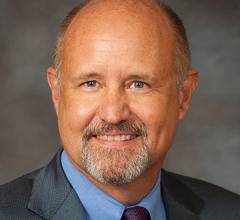
July 17, 2015 - Building teams that include advanced practice providers can help cardiovascular practices meet the challenges of modern practice, according to a new health policy statement by the American College of Cardiology (ACC). These challenges include workforce shortages, an aging patient population with growing complexities in care and a payment system in transition.
According to the statement, advance practice providers-which include advance practice registered nurses, physician assistants and doctors of pharmacy-are emerging as important members of the cardiovascular team, and their advanced education, training and experience allow them great autonomy that can extend a team's capabilities.
Cardiovascular nurses, technologists, cardiovascular surgeons, primary care physicians and others have long played important roles in the cardiovascular team, but the report 2015 ACC Health Policy Statement on Cardiovascular Team-Based Care and the Role of Advanced Practice Providers focuses specifically on the role of the advance practice providers.
"This policy statement supports what many cardiovascular practitioners have known and practiced for years, and it reflects the ACC's long-standing support for the multidisciplinary team," said John E. Brush Jr., M.D., FACC, co-chair of the panel that developed the report.
"The team-based approach improves efficiency and quality of care for patients with cardiovascular disease. We hope this policy statement will encourage an open dialogue about barriers to team-based care across practice settings," said Eileen M. Handberg, Ph.D., ARNP, FACC, co-chair of the writing panel.
The report says teams are most effective when they value honesty, discipline, creativity, humility and curiosity and when they have "shared goals and clear roles." The team should receive feedback on its shared goals and have mechanisms in place to correct deficiencies.
The leader of the cardiovascular health team has traditionally been the cardiologist, but the report says the leadership "should be flexible, reflecting the specific needs of the patient at a particular time and setting." The leader should be the team member with the greatest knowledge and experience for the task at hand.
"The ultimate leader for patient care is, of course, the patient. It is the informed patient, in consultation with family, who should ultimately determine the goals of the cardiovascular team-based care," the report said. It is up to the healthcare team to constructively engage the patient.
The statement notes that variations in state regulations regarding the licensure of practitioners and variations in payment policies by private and public payers can interfere with the team-based approach.
New payment models focusing on value over volume "represent both an opportunity and a challenge for cardiovascular team-based care," the report said. "The key to success will be to assign the right clinician to the right clinical task and patient at the right time in order to enhance efficiency and avoid indiscriminately replacing more-skilled providers with less-skilled providers."
To promote the team approach, the ACC should expand inter-professional education to encourage creative interaction by all members of the team, advocate for sensible payment reforms, and explore emerging technologies to extend the capabilities of the cardiovascular team, including telemedicine and virtual teams to help bring care to underserved regions, the authors said.
Watch the VIDEO “How to Build An Integrated Heart Team.” Brijeshwar Maini, M.D., and Brian Bethea, M.D., from Tenet Florida’s structural heart program, explain the importance of building a good heart team and how that team should interact.
For more information: www.acc.org


 July 29, 2024
July 29, 2024 








